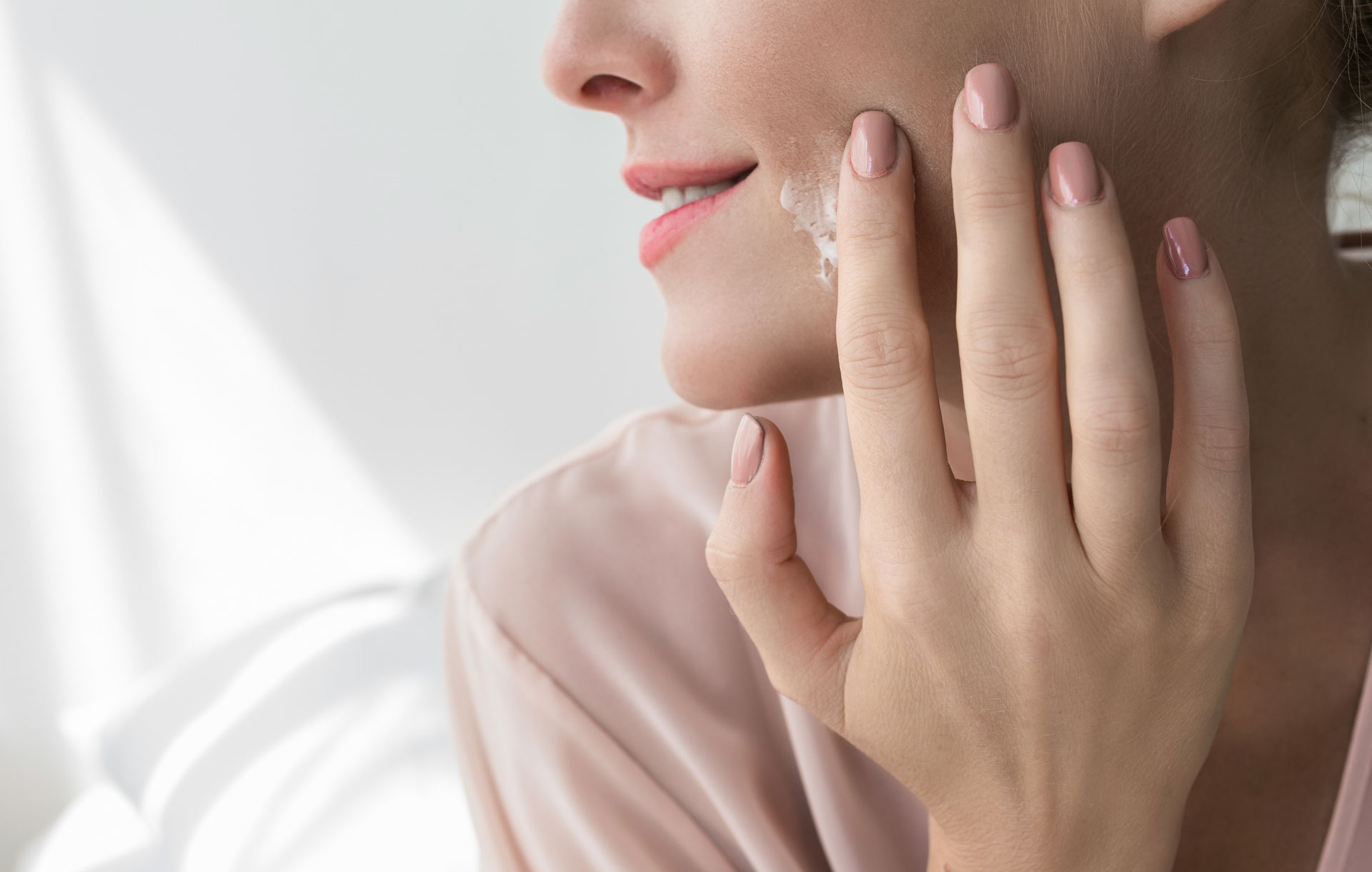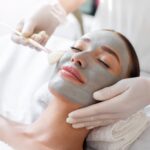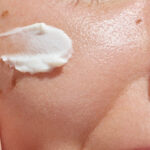
There’s no denying that hydrated skin is healthy skin. You only have to look at a raisin and compare it to a plump, juicy grape to see first-hand the effect that proper hydration has on our skin.
Dehydration is one of the most common skin conditions that almost everyone experiences at some point. It can be temporary or chronic, present in all skin types, even oily skin, and are caused by intrinsic and extrinsic factors. While dehydrated skin is not difficult to treat, it can sometimes be misleading or mistaken for dry skin.
DRY VS. DEHYDRATED SKIN
Whereas dry skin lacks oil and is characterized as a skin type, dehydrated skin lacks water and is considered a temporary skin condition. The tell-tale signs of skin lacking in water are a crepy or rough texture with tightness, flakiness, redness, increased sensitivity, more pronounced fine lines, dark circles, and a dull complexion. The challenge for skin therapists often lies in pinpointing the cause of dehydration, which is typically a combination of many different factors, some of which are beyond our control.
[ihc-hide-content ihc_mb_type=”show” ihc_mb_who=”2,4,5,6,7″ ihc_mb_template=”3″ ]
WHAT CAUSES DEHYDRATION?
The human body is made up mostly of water, 65-70% to be exact and it requires a constant balance of minerals and electrolytes to function properly. With skin being the largest organ and holding nearly 20% of the body’s water reserve, it only makes sense that the skin will be highly prone to dehydration. Water can quickly evaporate through the epidermis causing trans-epidermal water loss (TEWL) or move in and out of the cells internally through a process called osmosis.
Internal factors are one reason dehydration is common, and although drinking water is an obvious solution, it doesn’t always solve the problem entirely. Slight fluctuations in pH and electrolyte balance can cause water to leave faster than it can be replenished. Medications, caffeine, alcohol, salty foods, stress, poor diet, lack of sleep, allergies, and certain lifestyle choices can contribute to skin dehydration. Add environmental factors, harsh skincare products, and certain cosmetics to the mix, and it’s no wonder that many people experience dehydration on a daily basis.
ENVIRONMENTAL EFFECTS
Our skin is constantly responding to its environment and has a natural built-in ability to regulate its moisture levels by producing substances called natural moisturizing factors. NMFs keep our skin hydrated internally, acting as tiny moisture reservoirs. They also increase or decrease in proportion to the environment. Extreme or constantly changing temperatures can disrupt the skin’s ability to regulate its moisture levels leading to temporary dehydration. This is very common with air-travel, seasonal changes, and exposure to indoor heat, air conditioning, pollution, sun, wind, etc.
HOW BARRIER FUNCTION PLAYS A ROLE
To understand how our skin loses water externally, we need first to examine the stratum corneum, (the skin’s outermost layer,) which acts as the main barrier between our body and the environment. Made up of mostly keratin, the stratum corneum’s job is to keep toxins and bacteria from entering the skin and to prevent water from evaporating out of the cells. Like brick and mortar, a healthy stratum corneum is composed of many layers of corneocytes tightly packed and held together by an intracellular matrix, made up of lipids and proteins. Is it within these cells that we find the skin’s natural moisturizing factors. When the stratum corneum is too thin or damaged, it cannot produce enough NMFs. Subsequently, when the skin’s barrier is compromised, water escapes more easily, resulting in transepidermal water loss.
SHORT-TERM VS. LONG-TERM EFFECTS
The good news is that short-term effects of dehydration are usually temporary, and with proper treatment, the skin can bounce right back to its former self. On the other hand, chronic dehydration can wreak major havoc on the skin, putting stress on living cells and tissues and affecting their biological functions. This leads to an impaired barrier function, which leads to inflammation and the breakdown of collagen, which ultimately leads to premature aging. It’s no surprise that keeping the skin properly hydrated is still one of the best and most effective anti-aging solutions.
TREATING DEHYDRATED SKIN
Aside from drinking more water and making simple lifestyle changes, treating dehydration can be as simple as adjusting a client’s skincare routine and adding more humectants or water-binding ingredients such as hyaluronic acid, urea, sodium PCA and glycerin. Hydrating treatments, masks, serums, and water-based products are excellent ways to get more water into the skin. Alternatively, adding emollient ingredients will help to seal in hydration and prevent water from escaping through the epidermal layers.
If the lipid barrier is damaged, ingredients that mimic the skin’s natural moisturizing factors like squalane, ceramides, lipids, and amino acids can help repair, heal and strengthen the stratum corneum until the skin can make its NMFS again. Meanwhile, oil-based creams and emulsions can create a secondary layer of protection against a harsh environment, especially during extremely dry months.
During humid seasons, even though the skin is better able to hold onto wawater, it can still become dehydrated from heat, excessive sun sweating, and indoor air conditioning. To prevent dehydration, it’s essential to educate clients on what they should avoid in their skincare regimen. Using harsh cleansers or alkaline soaps, strong exfoliants, and hot water can severely impact the skin barrier. A proper cleansing regimen should be gentle enough, yet effective at removing sunscreen, pollution, and impurities while still respecting the skin’s delicate balance. The skin should always be protected during the daytime. When our bodies generally become more dehydrated at night, a rich and nourishing night cream can help keep it supple.
With time and proper care, the skin will regain a plump, dewy, and healthy appearance. After all, our skin is an intelligent organ, and it is more than capable of healing itself, given the right environment and proper nutrients.
[/ihc-hide-content]












